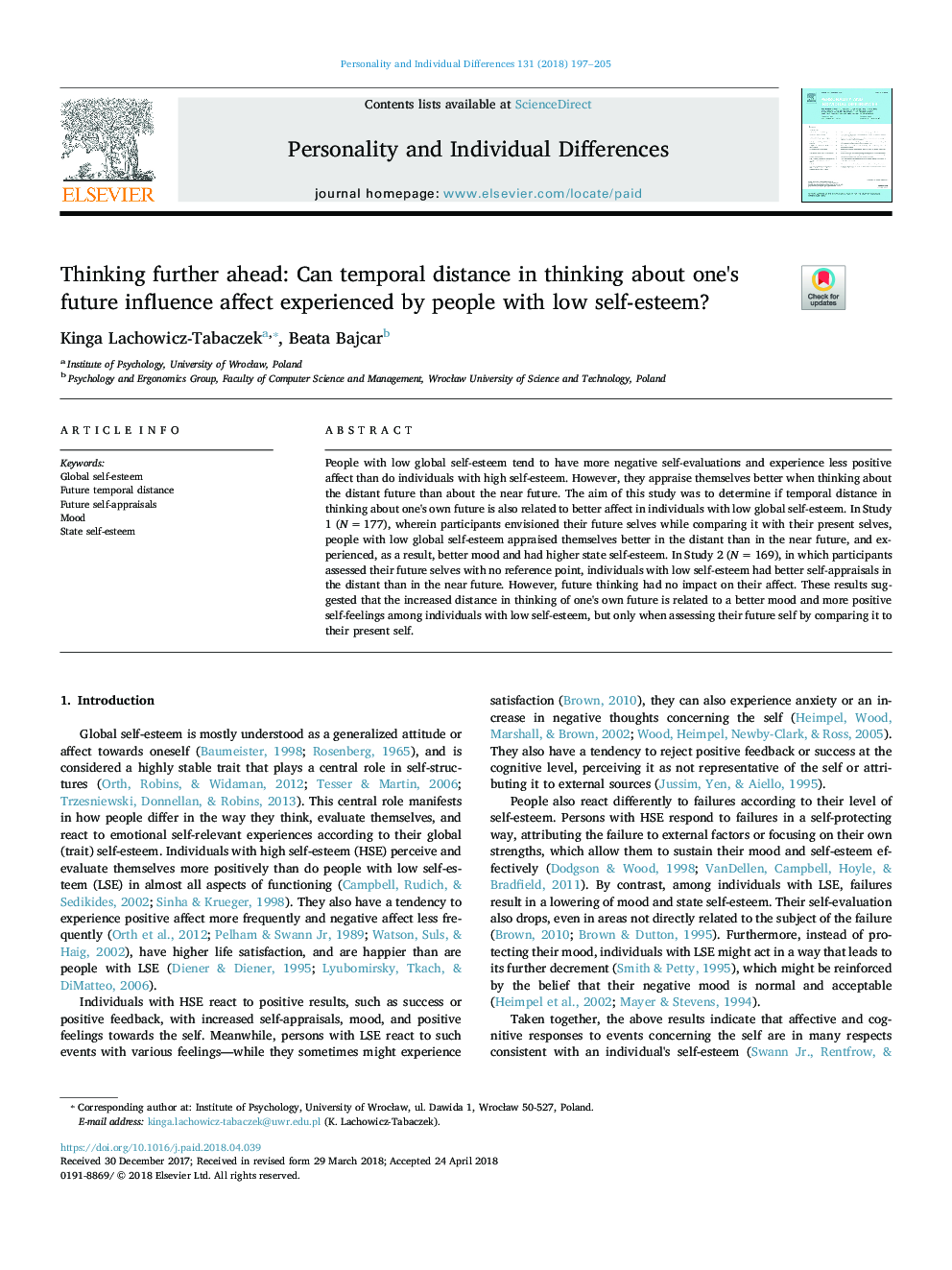| Article ID | Journal | Published Year | Pages | File Type |
|---|---|---|---|---|
| 7248590 | Personality and Individual Differences | 2018 | 9 Pages |
Abstract
People with low global self-esteem tend to have more negative self-evaluations and experience less positive affect than do individuals with high self-esteem. However, they appraise themselves better when thinking about the distant future than about the near future. The aim of this study was to determine if temporal distance in thinking about one's own future is also related to better affect in individuals with low global self-esteem. In Study 1 (Nâ¯=â¯177), wherein participants envisioned their future selves while comparing it with their present selves, people with low global self-esteem appraised themselves better in the distant than in the near future, and experienced, as a result, better mood and had higher state self-esteem. In Study 2 (Nâ¯=â¯169), in which participants assessed their future selves with no reference point, individuals with low self-esteem had better self-appraisals in the distant than in the near future. However, future thinking had no impact on their affect. These results suggested that the increased distance in thinking of one's own future is related to a better mood and more positive self-feelings among individuals with low self-esteem, but only when assessing their future self by comparing it to their present self.
Related Topics
Life Sciences
Neuroscience
Behavioral Neuroscience
Authors
Kinga Lachowicz-Tabaczek, Beata Bajcar,
